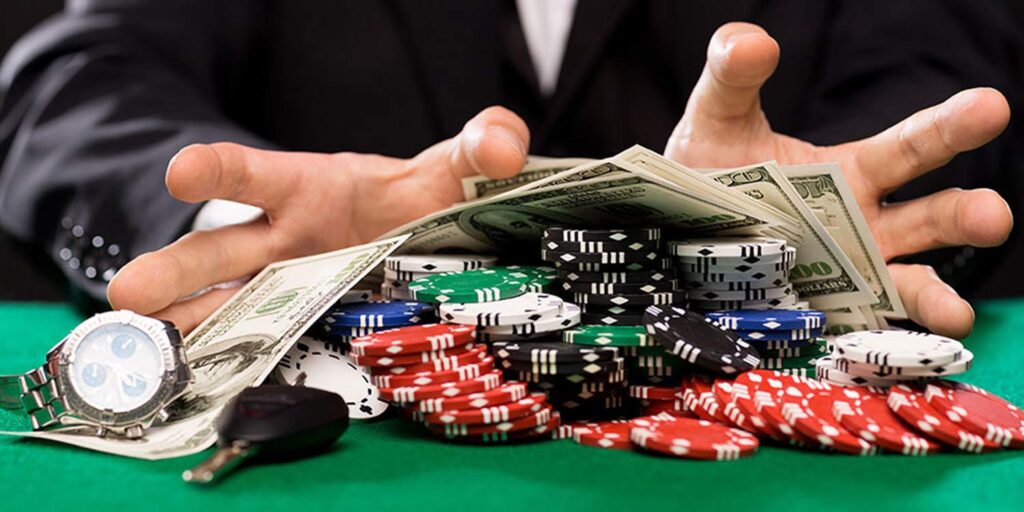
Online gaming and gambling have become increasingly popular forms of entertainment in the digital age, offering immersive experiences and opportunities to win real money. While most people can engage in these activities in moderation without issues, for some, these hobbies can spiral into an addiction that takes control of their lives. What begins as innocent fun can quickly become a destructive fixation, leading to negative consequences for mental health, relationships, and finances. Recognizing the warning signs of online gaming and gambling addiction is crucial for early intervention and recovery.
Understanding the Allure of Online Gaming and Gambling
The appeal of online gaming and gambling is easy to understand. Games offer excitement, challenges, rewards, and the opportunity to connect with others in virtual worlds. Similarly, gambling provides the thrill of taking risks and the possibility of winning big. The digital landscape has made both activities even more accessible, with a wide range of games and gambling platforms available at the click of a button.
However, when these activities shift from being a source of entertainment to an obsession, it becomes problematic. Addiction can develop due to the way games and gambling platforms are designed. Many use psychologically-driven mechanics—such as variable rewards and constant progression—that keep players hooked. Additionally, in-game purchases like loot boxes and microtransactions can mimic the behavior of gambling, further blurring the line between entertainment and addiction.
Warning Signs of Online Gaming Addiction
While online gaming can be an enjoyable and harmless activity for many, it’s important to recognize when it becomes an addiction. Here are some key warning signs to watch for:
- Loss of Control: One of the primary indicators of gaming addiction is the inability to control gaming time. If you find yourself playing for hours beyond what you intended or feeling the urge to play constantly, it could be a sign that gaming is no longer a choice but a compulsion.
- Neglecting Responsibilities: When gaming begins to take precedence over work, school, or other important aspects of life, it’s a red flag. This may result in missed deadlines, poor performance at work or school, and neglect of household chores or personal health.
- Preoccupation with Gaming: If you frequently think about gaming, even when not playing, or spend excessive time planning your next gaming session, it may indicate that your focus has shifted away from other aspects of life.
- Withdrawal Symptoms: Like other addictions, gaming addiction can trigger withdrawal symptoms. These might include irritability, anxiety, depression, or restlessness when you’re unable to play. This emotional discomfort can lead individuals to return to gaming as a form of self-soothing.
- Escalating Time and Money Spent: As addiction sets in, individuals often escalate the amount of time spent on games or gambling. Similarly, spending money on in-game purchases, loot boxes, or betting can become a way to chase the excitement of the game or gambling experience, even if it causes financial strain.
Warning Signs of Online Gambling Addiction
The signs of gambling addiction can overlap with those of gaming addiction but also have specific traits unique to gambling behavior:
- Chasing Losses: One of the clearest signs of gambling addiction is the behavior of trying to win back money that has been lost. This “chasing losses” mentality can lead to greater financial losses and deeper financial strain.
- Increased Risk-Taking: Gamblers often escalate their bets or wagers in search of larger rewards or adrenaline, taking greater risks than they originally intended.
- Lying About Gambling: People with gambling addiction may lie to friends, family, or even themselves about how much they are gambling or the extent of their losses. This dishonesty can lead to broken relationships and a cycle of secrecy.
- Financial Problems: Similar to gaming addiction, gambling can lead to significant financial issues, from overspending on bets to accumulating debt in an attempt to recover losses. The pursuit of bigger wins can drive an individual to take out loans or borrow money from others.
The Impact of Addiction
Both online gaming and gambling addiction can have profound effects on an individual’s life. Relationships can become strained, with family and friends feeling neglected or betrayed. Mental health problems, such as anxiety, depression, and feelings of hopelessness, often accompany addiction. Financial difficulties can also arise, with some individuals going into debt due to gambling losses or overspending on in-game purchases.
Additionally, both gaming and gambling addiction can lead to a sense of isolation. Addicts may withdraw from social activities, preferring to immerse themselves in the virtual world. This can lead to loneliness, a lack of real-life connections, and a diminished sense of self-worth.
Steps Toward Recovery
If you or someone you know is showing signs of online gaming or gambling addiction, it’s important to take action. The first step is acknowledging the problem. Seeking help from a mental health professional, especially one who specializes in addiction, can provide valuable guidance and support. Cognitive-behavioral therapy (CBT) is a common approach for treating addiction, as it helps individuals identify and change harmful thought patterns and behaviors.
Setting limits on gaming time, taking breaks from online platforms, and seeking support from friends, family, or support groups are also effective strategies for overcoming addiction. Many support groups, both online and in-person, provide a safe space for individuals to share their experiences and gain encouragement from others in similar situations.
Conclusion
Recognizing the warning signs of online gaming and gambling addiction is the first step toward recovery. While these activities can be enjoyable and even rewarding when approached in moderation, they can also become all-consuming and harmful when taken to extremes. By understanding the signs of addiction and taking proactive steps to address it, individuals can regain control of their lives and restore balance, health, and happiness.